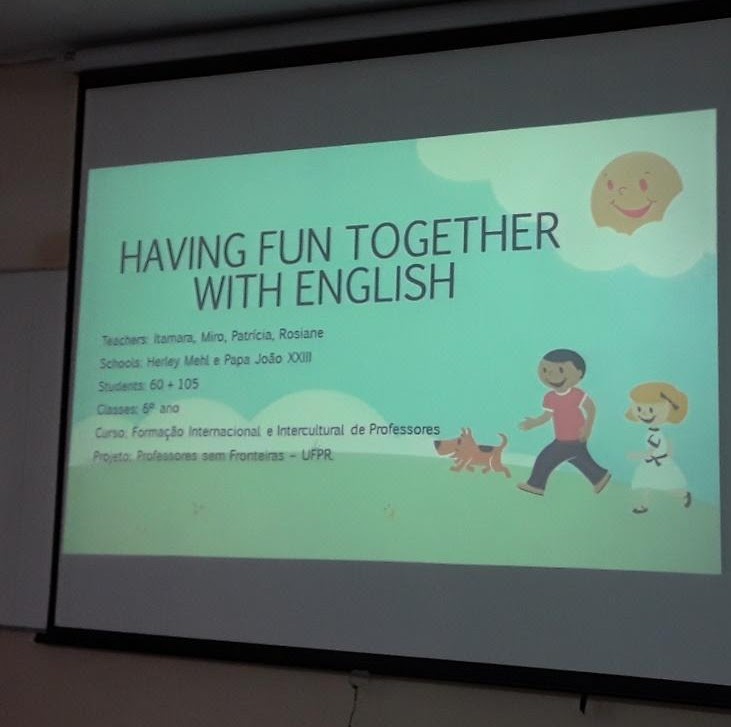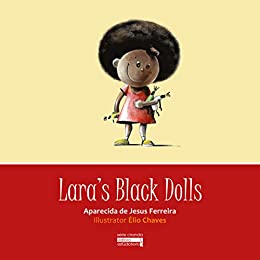2019
Course: International and intercultural teacher training: a collaboration between UFPR and Otterbein
The International and Intercultural Teacher Training course is a collaboration between UFPR and Otterbein (March to June 2019 – 54 hours), promoted dialogical and collaborative exchanges between different theoretical and practical knowledge in the area of language teaching-learning of exchange teachers at UFPR, English teachers of Basic Education in the public network, postgraduates and undergraduates of UFPR, as well as teacher educators involved in the proposal. Its goal was to encourage intellectual, professional and personal growth by discussing cultural knowledge and experiences that stimulate interest in intercultural and international learning. During the course, the participants planned and implemented Critical Literacy projects in public schools in the city of Curitiba and metropolitan region and in the city of Ponta Grossa, Paraná.
Conheça os planos de aula vivenciados nas escolas:



Eating Habits
Respect for differences
Are you living in an Instalife?
School: Escola municipal Isabel Lopes.
Teachers: Ana Flávia Davies, Fernanda Marconcin, Leonardo Duarte, and Luciana de Franchi.
This course developed English language learning from discussions about eating habits. Students were prompted to reflect on their diets and the long-term impact of food.
School: Escola municipal Coronel Durival Britto e Silva.
Teachers: Marcélia Percgona, Selmi Machado, Kharina Garrett, and Sueli Aparecida de Sá.
In this course, the activities developed used the English language in order to promote respect for differences among eighth-grade students. Through fun activities that involved music, videos, and games, the students learned to value their personal attributes and respect the differences of their peers.
School: Escola Estadual Genésio Moresch.
Teachers: Antônio, Elaine da Cruz, Caroline Rodrigues and Francis Ling.
The beauty standards promoted by social networks were questioned throughout this course. In addition, the students built the linguistic knowledge necessary to express their singularities, their anxieties, their questionings, and their discomforts during the classes.



Society, Education and Schooling
Having fun together
Literature and relations between gender and race in Lara's Black Dolls
School: Escola estadual Costa Viana.
Teachers: Eliana Edmundo, Elza Dissenha, and Katia Mulik.
The goal of this project was to reflect on education from a local and global perspective, relating education in schools with world knowledge, as well as the functioning of society and human rights.
School: Escola municipal Herley Mehl and escola municipal Papa João XXIII.
Teachers: Itamara Peters, Patricia Haas, Rosian, and Valdomiro Arantes.
The project aimed to question the use of cell phones in the classroom and the consequent isolation of students from group and collaborative activities. Games were played in English (Hide and Seek, Adoleta, Mr. Crocodile, etc.) in order to promote sensitivity to others, the danger of using cell phones, and group work.
School: Escola estadual Polivalente.
Teachers: Linite Oliveira, Andressa Siqueira and Angela Walesko.
http://www.aparecidadejesusferreira.com/novo/publicacoes/livro-laras-black-dolls/
The ethnic and gender representation in toys and its effects on the lives of the students was the theme addressed during this intervention. The book Lara’s Black Dolls, written by Aparecida de Jesus Ferreira, was discussed in class, clarifying the importance of collective respect.
Supervised Internship as a Collaborative Space for the Education of Language Teachers
The course Supervised Internship as a Collaborative Space for the Education of Language Teachers aimed at establishing partnerships between UFPR/Sector of Education and language teachers from Basic Education who work in public and private schools for the supervised internship of the Language course, in a collaborative work of teacher education. As a pilot project, the course was characterized as a positive experience for a future reformulation of the supervised internship practices of foreign language students at UFPR in schools. Based on the assumption that internship supervision is a learning opportunity between two people with different levels of experience and potential to learn, pairs were organized, consisting of a student intern and a Basic Education teacher. In this way, each pair worked in partnership in the planning and application of classroom activities, experiencing in a real way the theoretical and practical discussions held in the course, in specific conversation circles (only for undergraduates or only for teachers) and in the large group, especially those related to co-teaching and coaching.
